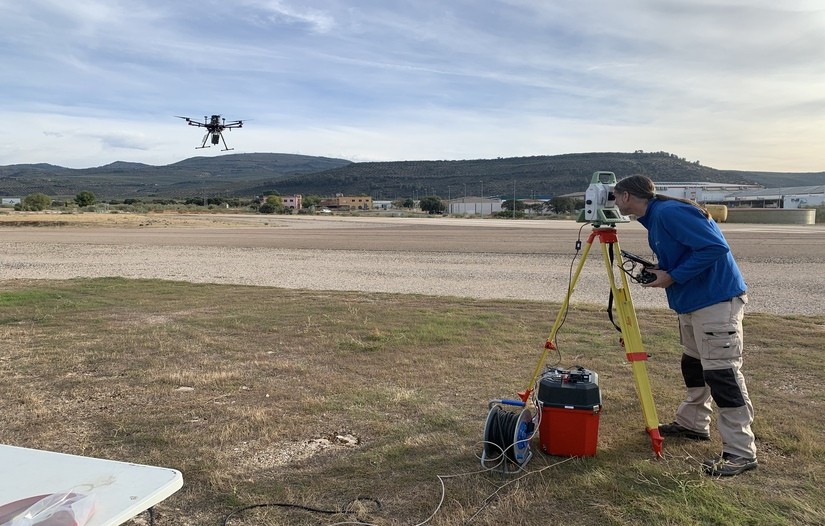The first test flight results of the Support to Standardisation Actions for EGNOS and Galileo in the U-Space (SONORA) programme – to incorporate European Global Navigation Satellite System (EGNSS) services into its standards and regulations and foster the implementation of EGNSS-based solutions in U-Space – has suggested that Europe’s Galileo GNSS will be more accurate than the US’ GPS for tracking drone flights.
The test flight took place on November 8 and 9, 2022 at the Tactical Center of the Air Traffic Laboratory for Advanced Unmanned Systems (ATLAS), in Beas de Segura in the Spanish province of Jaén. The objective of the trial was to collect and analyse GNSS data from different equipment and technologies to support the development and verification of standards, as well as evaluating new EGNSS services such as GAL HAS and OS-NMA, in a non-degraded environment. Several real-life UAS missions, such as highway surveillance, vehicle pursuit, and intrusion detection, were planned and executed.
“During the first day of the trial there was a solar storm that led to obtaining a degraded GPS single frequency performance,” according to GMV, one of the programme leaders. “However, when in combination with EGNOS, even in single frequency the ionospheric error was corrected and position errors were reduced considerably, resulting in the best observed performance among all tested configurations. Regarding the comparison between Galileo and GPS and the single and double frequency solutions (SF and DF, respectively), it has been observed that under similar geometry conditions in terms of satellite distribution and availability, the accuracy provided by Galileo is better than GPS’s. Also, Galileo’s accuracy improves significantly with DF compared to SF, reaching errors almost as low as those obtained with SBAS (EGNOS).”
Two flight trial campaigns have been foreseen to achieve SONORA’s objectives. The second one will take place in the coastal city of Benidorm and is scheduled for autumn of 2023. It will include the performance of a similar study, but this time in a more challenging urban environment and including the use of GNSS receivers hybridized with other technologies such as IMUs. The main objective of this experimentation will be to gather relevant data on EGNSS services for the support of the development of Innovative Air Mobility applications, such as Urban Air Mobility.
For more information
https://www.gmv.com/en-es/communication/news/succesful-flight-tests-performed-sonora-project




